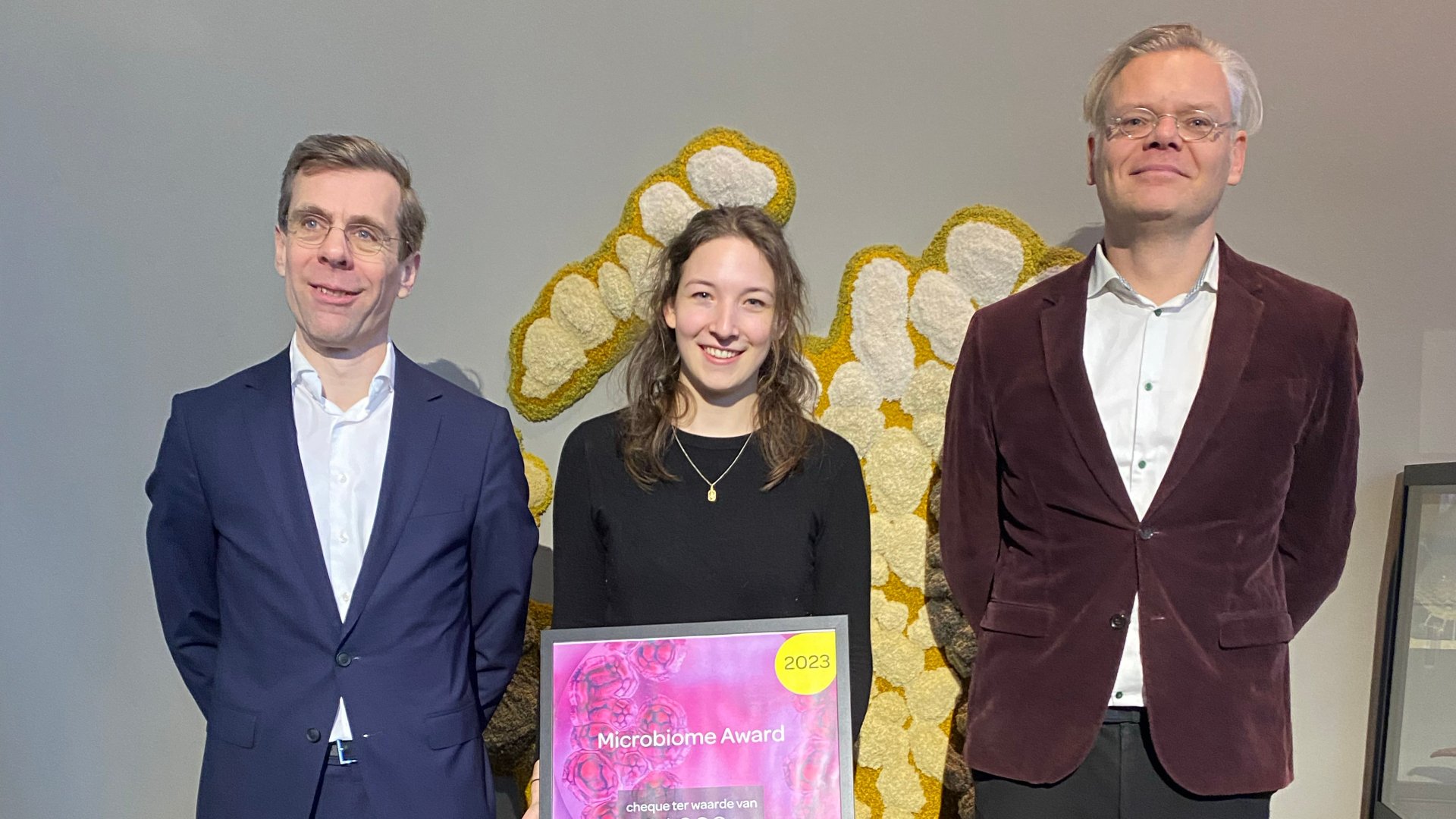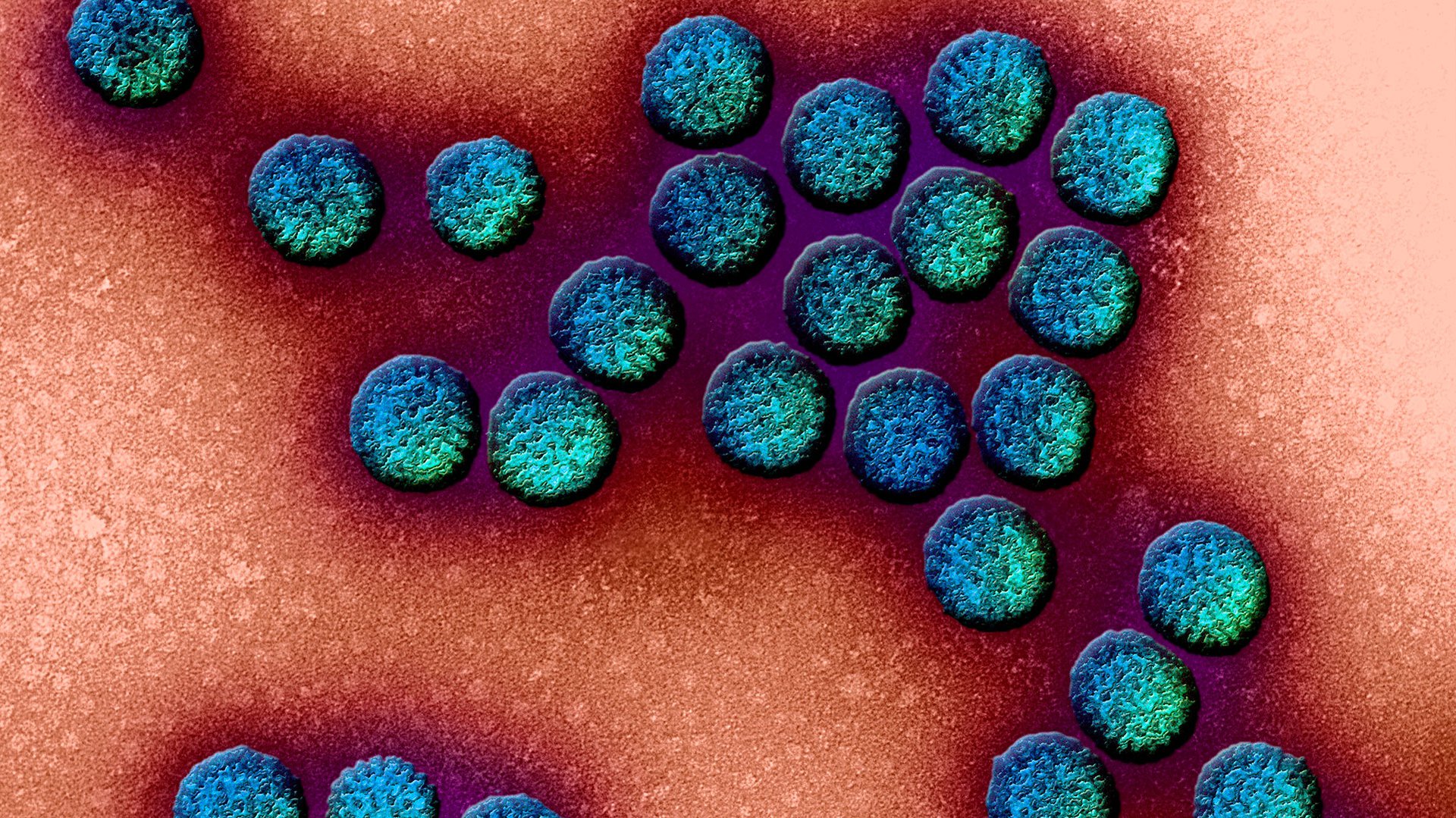The proposal was written as part of the 'Human Microbiome in Health and Disease' lecture series. This lecture series is organised annually by Micropia professor Remco Kort, affiliated to VU University Amsterdam, for students at Dutch universities.

'Weaning reaction'
Our microbiome is an immense ecosystem of microbes that keep us healthy. You build this ecosystem mainly in the first three years of your life. This period is important for a well-functioning and diverse microbiome, but also for an effective immune system. Research shows that during weaning - the process in which a young child gradually switches from breast milk to solid food - a major change in the microbiome takes place. The immune system prepares for the future. Thus, the microbial composition changes from mainly Bifido and Lactobacillus bacteria to a diversity consisting of Clostridiales and Bacteroidales species. This change also triggers an immune system response that produces so-called Treg cells (ROR-γt+ regulatory T). These cells protect the gut from infections and prevent infectious diseases later in life. This essential change in diversity and defences is what researchers call the 'weaning reaction'.
Devastating problem
Unfortunately, there are many ways in which this 'weaning reaction' is affected. Such as giving formula milk instead of breast milk, a caesarean section instead of a vaginal birth, and the use of antibiotics during this weaning process. Böttcher focuses on the latter. A growing problem due to the global increase in antibiotic use. Antibiotics often not only kill the pathogen, but also have a devastating effect on the benign microbes in the gut, especially at such a young age. Research shows that antibiotic use in these young children therefore disrupts the 'weaning reaction'. This then affects the development of the immune system, resulting in possible allergies and autoimmune diseases later in life. To still achieve a proper 'weaning reaction' after antibiotic treatment, Böttcher suggests giving the children a faecal transplant. Her hope is that a donation containing mainly Clostridiales and Bacteroidales species will still encourage the young immune system to produce the important Treg cells, as well as enrich the microbiome with the right bacterial species.
More awareness and education
Despite the fact that a poop transplant for young and often sick children might be complicated, the jury, consisting of professor Ger Rijkers, Dr Olaf Larsen, Micropia professor Remco Kort and head of Micropia Jasper Buikx, agreed on the need for a solution to this problem. Moreover, it will lead to greater awareness and proper education about this important period in young children's lives among both doctors and parents.
Micropia Microbiome Award
Microbiology studies the smallest organisms, such as fungi, yeasts and bacteria. These microorganisms are the most powerful life on earth. The Micropia Microbiome Award was created to get students excited about microbiology. Every year, Micropia professor Remco Kort gives the lecture series 'Human Microbiome in Health and Disease' on the human microbiome and how it functions in disease and health. At the end of the series, students will write a research proposal using their newly acquired knowledge about the microbiome and recent research on it. The proposal describes an innovative application of microbes that could benefit our health or that of our planet.

